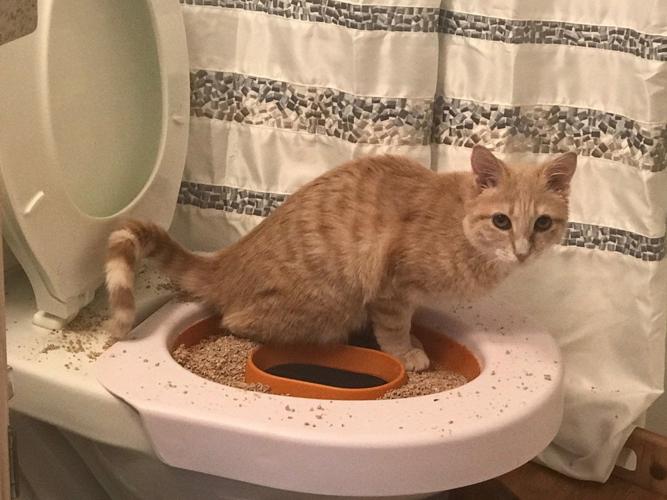Avoid Toilet Emergencies: Never Flush Cat Poop Down Your Toilet - Professional Advice
Avoid Toilet Emergencies: Never Flush Cat Poop Down Your Toilet - Professional Advice
Blog Article
The author is making a few good pointers about Don’t flush cat feces down the toilet in general in this content in the next paragraphs.

Introduction
As cat proprietors, it's important to be mindful of how we dispose of our feline good friends' waste. While it might appear hassle-free to purge cat poop down the bathroom, this method can have damaging consequences for both the setting and human wellness.
Environmental Impact
Flushing cat poop presents hazardous pathogens and bloodsuckers right into the supply of water, posing a considerable threat to aquatic environments. These contaminants can negatively influence marine life and concession water top quality.
Health and wellness Risks
In addition to environmental issues, purging pet cat waste can also position health and wellness risks to humans. Pet cat feces might have Toxoplasma gondii, a parasite that can create toxoplasmosis-- a possibly serious illness, specifically for pregnant ladies and people with damaged immune systems.
Alternatives to Flushing
Luckily, there are more secure and more liable ways to dispose of feline poop. Take into consideration the complying with alternatives:
1. Scoop and Dispose in Trash
One of the most typical approach of throwing away pet cat poop is to scoop it right into an eco-friendly bag and throw it in the garbage. Be sure to use a specialized clutter inside story and dispose of the waste promptly.
2. Usage Biodegradable Litter
Go with eco-friendly cat clutter made from materials such as corn or wheat. These trashes are eco-friendly and can be securely taken care of in the garbage.
3. Hide in the Yard
If you have a backyard, take into consideration burying pet cat waste in a marked location away from veggie gardens and water resources. Be sure to dig deep adequate to prevent contamination of groundwater.
4. Mount a Pet Waste Disposal System
Invest in a pet waste disposal system especially made for cat waste. These systems use enzymes to break down the waste, minimizing smell and ecological effect.
Conclusion
Liable pet dog ownership expands beyond providing food and shelter-- it additionally includes proper waste monitoring. By refraining from flushing feline poop down the toilet and opting for alternative disposal approaches, we can reduce our ecological footprint and secure human health and wellness.
Why You Should Never Flush Cat Poop Down the Toilet
A rose by any other name might smell as sweet, but not all poop is created equal. Toilets, and our sewage systems, are designed for human excrement, not animal waste. It might seem like it couldn’t hurt to toss cat feces into the loo, but it’s not a good idea to flush cat poop in the toilet.
First and foremost, assuming your cat uses a litter box, any waste is going to have litter on it. And even the smallest amount of litter can wreak havoc on plumbing.
Over time, small amounts build up, filling up your septic system. Most litter sold today is clumping; it is made from a type of clay that hardens when it gets wet. Ever tried to scrape old clumps from the bottom of a litter box? You know just how cement-hard it can get!
Now imagine just a small clump of that stuck in your pipes. A simple de-clogger like Drano isn’t going to cut it. And that means it’s going to cost you big time to fix it.
Parasitic Contamination
Believe it or not, your healthy kitty may be harboring a nasty parasite. Only cats excrete Toxoplasma in their feces. Yet it rarely causes serious health issues in the cats that are infected. Most people will be fine too if infected. Only pregnant women and people with compromised immune systems are at risk. (If you’ve ever heard how women who are expecting are excused from litter cleaning duty, Toxoplasma is why.)
But other animals may have a problem if infected with the parasite. And human water treatment systems aren’t designed to handle it. As a result, the systems don’t remove the parasite before discharging wastewater into local waterways. Fish, shellfish, and other marine life — otters in particular — are susceptible to toxoplasma. If exposed, most will end up with brain damage and many will die.
Depending on the species of fish, they may end up on someone’s fish hook and, ultimately on someone’s dinner plate. If that someone has a chronic illness, they’re at risk.
Skip the Toilet Training
We know there are folks out there who like to toilet train their cats. And we give them props, it takes a lot of work. But thanks to the toxoplasma, it’s not a good idea.

I'm just very inquisitive about How to Dispose of Cat Poop and Litter Without Plastic Bags and I'm hoping you enjoyed the entire page. Remember to take the time to share this page if you enjoyed it. Thank you for taking the time to read it.
Get Started Report this page